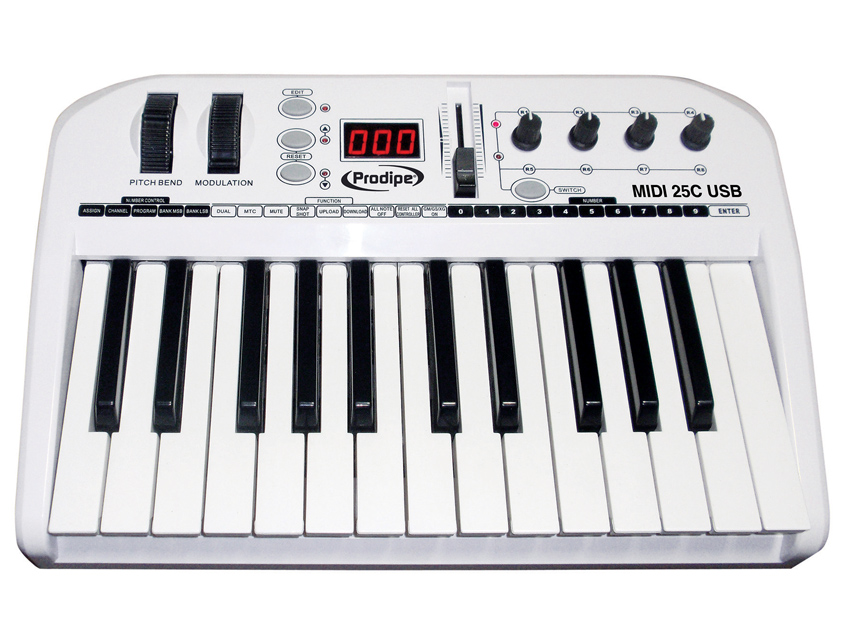MusicRadar Verdict
It'll get the job done, but the Prodipe 25C doesn't go about its business with much finesse.
Pros
- +
Plenty of features. Relatively cheap.
Cons
- -
It looks 15 years old. The keys don't feel great.
MusicRadar's got your back
Let's get the bad news out of the way first: the USB- powered Prodipe 25C looks dated (it appears to have been inspired by the very first generation of M-Audio's Oxygen 8), its case feels slightly brittle and the 25 keys don't play so well. They almost feel 'stepped', with a discernable change halfway down the action.
What this controller does have in its favour, though, is a wide-ranging feature set. The pitch/mod wheels, two data buttons, data entry slider and four notched knobs are all assignable; in fact, the knobs can be switched between two banks of assignments and transmit on different MIDI channels. There's also a Dual mode that lets you send MIDI data from the keyboard and some of the controllers on two channels simultaneously.
Round the back, you've got a 5-pin MIDI Out, a pedal input and the option to power from the mains.
This is worth looking at if you're on a tight budget, but there are smarter, better feeling 25-note controllers out there.
Want all the hottest music and gear news, reviews, deals, features and more, direct to your inbox? Sign up here.
Computer Music magazine is the world’s best selling publication dedicated solely to making great music with your Mac or PC computer. Each issue it brings its lucky readers the best in cutting-edge tutorials, need-to-know, expert software reviews and even all the tools you actually need to make great music today, courtesy of our legendary CM Plugin Suite.

